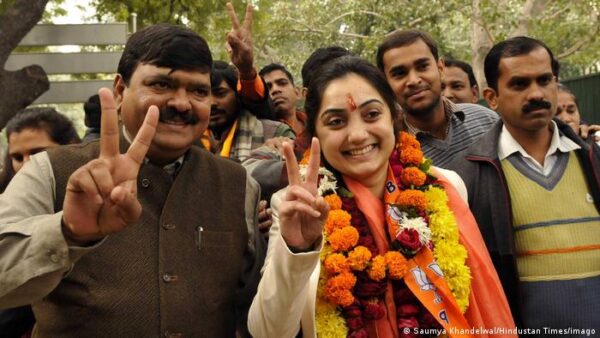India has been on the receiving cease of a sturdy diplomatic backlash from some of Muslim-majority countries over the last few days after spokespersons of the country’s ruling Bharatiya Janata Party (BJP) made contentious comments on Prophet Muhammad.
Nupur Sharma, a spokesperson for Prime Minister Narendra Modi’s BJP, commented at the prophet’s personal lifestyles throughout a latest heated TV debate, sparking furor amongst Muslims from each inside and outdoor India.
Many Islamic countries have demanded an apology from the Indian authorities and there have additionally been requires a boycott of Indian products.
New Delhi went into harm manipulate and attempted to distance itself from the debatable feedback via way of means of announcing that they did now no longer in any manner replicate the Indian authorities’s perspectives.
The BJP has suspended Sharma from the celebration for expressing “perspectives opposite to the celebration’s position” and stated it “respects all religions.” The celebration additionally expelled every other spokesman, Naveen Kumar Jindal, over feedback he made approximately Islam on social media.
Furthermore, the BJP advised officers to be “extraordinarily cautious” while speakme approximately faith on public platforms.
Religious tensions among Hindus and Muslims
Police withinside the Indian capital New Delhi stated that they’d registered a case in opposition to the suspended spokeswoman for “inciting humans on divisive lines.” Authorities additionally arrested a BJP adolescents chief for posting anti-Muslim feedback on social media.
“I suppose the authorities has taken the problem seriously. At all levels, it has pressured that every one religions are same and it has acted expeditiously in this incident. We can’t come up with the money for to dissatisfied our pleasant family members with the Arab world,” Veena Sikri, a former diplomat and a member of the Forum of Former Ambassadors of India, advised DW.
The controversy comes in opposition to the backdrop of developing complaint of ways Muslims are being dealt with withinside the South Asian country.
Since coming to energy nationally in 2014, Modi’s authorities and the BJP had been accused of championing Hindu nationalist reasons and discriminating in opposition to Muslims.
Critics say the BJP rule has emboldened hardline Hindu groups.
Tensions among Hindus and Muslims — who make up round 15% of India’s 1.35 billion population — look like at the upward thrust, with developing disagreements among the 2 groups over troubles consisting of disputed locations of worship and carrying of head scarves in academic institutions, amongst others.
The BJP, however, has again and again denied any upward thrust in non secular tensions beneathneath Modi’s premiership.
A key vicinity for India
The blowback from Muslim nations has turn out to be a chief diplomatic assignment for Modi who in latest years has cultivated sturdy ties to strength-wealthy Islamic countries, specially withinside the Persian Gulf.
Relations with the Gulf Cooperation Council (GCC) — a membership along with Saudi Arabia, the UAE, Qatar, Kuwait, Oman and Bahrain — are extraordinarily vital for India.
The vicinity is a chief supply of India’s strength supplies — accounting for round 60% of India’s crude imports — and overseas remittances. It additionally hosts tens of thousands and thousands of Indian migrant laborers, whose wellness is of vital significance to New Delhi.
Commerce among the 2 facets has been developing rapidly, with India’s exports to the GCC growing over 58% 12 months-on-12 months to approximately $forty four billion in 2021, even as imports leaping over 85% to $110.seventy three billion.
New Delhi is likewise reportedly searching at negotiating a loose exchange settlement with the grouping.
‘India wishes them greater’
While those nations hadn’t been openly vital of the Modi authorities’s rules vis-à-vis Indian Muslims, they condemned the now-suspended spokespersons’ debatable comments, indicating that insulting the Prophet became a purple line. Some nations additionally summoned Indian ambassadors to explicit their disappointment.
Happymon Jacob, who teaches overseas coverage at Delhi’s Jawaharlal Nehru University, stated India can’t fend off complaint from influential nearby powers in West Asia in contrast to complaint from the West.
“The latest incident has highlighted the plain threat of unconstrained home extremism harming India’s coverage objectives,” he advised DW, including that New Delhi’s overseas coverage have to now no longer be undermined via way of means of hate speech and communal politics.
“India wishes the West Asian states greater than they want India,” stated Jacob.



